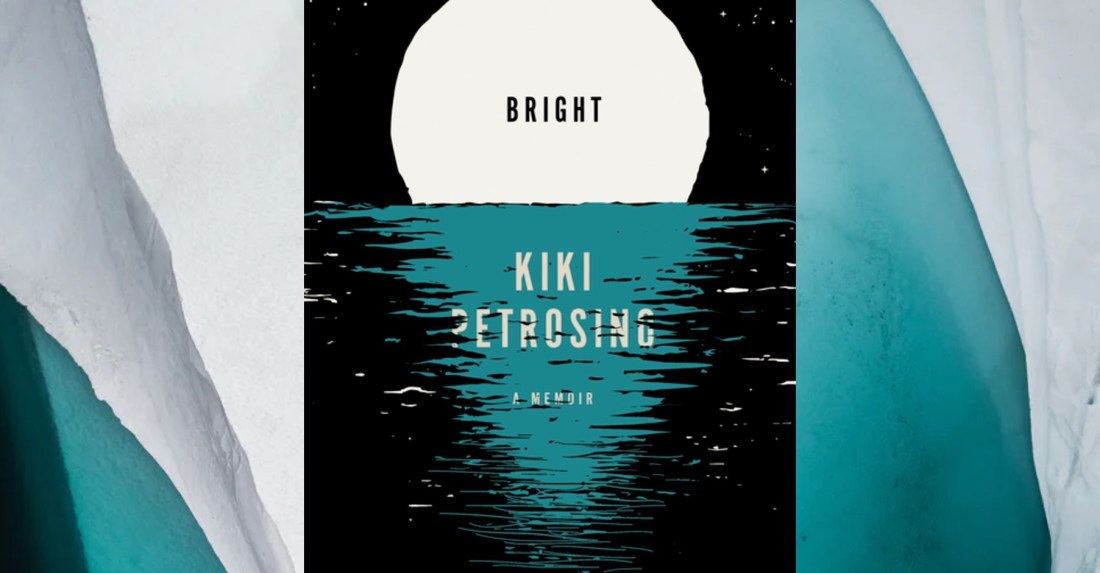I associate the word “bright” with positivity. When I Google the exact definition, there are many meanings listed under the search bar — “full of light,” “having a vivid color,” “cheerful liveliness,” “intelligent and quick-witted.” For me, it has always been something good, but for poet Kiki Petrosino and many others, the word has a different meaning. “It is not a compliment,” Petrosino says in the first few pages of her latest book, Bright. It’s a slang term for someone who is of mixed race, specifically of Black and white descent, and light-skinned.
Part experimental essay collection, part memoir, Bright is a stunning examination of love, family, and human nature through Petrosino’s childhood in a rural, predominantly white town to becoming a poet and professor at the University of Virginia. Along the way, Petrosino explores the little curiosities and atrocities that connect her physical appearance to American history, religion and faith, epic literature, and her own lineage.
She starts in 1979. Petrosino was born in Baltimore to an Italian-American father and Black mother. In the 80s, her parents relocated the family to idyllic Shrewsbury, Pennsylvania, where weekends meant buying Amish bread and visiting Dutch Wonderland as a family for kiddie rides on the weekends. Everything about Shrewsbury meant “abundance, welcome, good luck.”
Despite this promise, Petrosino describes a painful, lonely Catholic school experience, where her classmates would call her names and teachers made comments about her hair. In a heartbreaking passage, Petrosino compares her mother’s drawings of brown angels in a position of “tenderness and protection” and her own experience of studying her physical appearance in the mirror:
Even before Pennsylvania, there was something I didn’t like about my mouth, my teeth. It wouldn’t go away.
Part of my brightness begins here, too.
Her early experiences comprise the first few essays in the collection and are charged with heartache. What follows is a fascinating exploration of history and literature in the hopes of tracing back her heritage. It is more than the union of her mother and father; Petrosino leaps between the writings of Thomas Jefferson and the continuation of slavery in the early United States, to finding music in names through the practice of scansion, to a particularly poignant and heartbreaking revelation of her grandfather’s suicide in the section titled “The Wish.”
This and the following sections of the book, “The Spell,” “The Question,” and “The Departure,” are both agonizing and magical. Petrosino’s words shimmer as she examines her connection with her physical body in a “quest” after her grandfather’s death. She makes allusions to the nature of human empathy using the freed spirit Ariel from Shakespeare’s The Tempest and uses the image of deathly bark and wood to connect The Wood of the Suicides in Dante’s Inferno to “the wild briar” in her soul in which tenderness and empathy seem not to grow.
Despite this insistence, Petrosino does seem to have affection for poetry, for religion, and the family that made her. Love continues to grow in her, even as she gathers more acclaim for her writing and experiences the microaggressions of the modern world — a colleague comparing their skin colors, an attendee of one of her readings coming up and touching her hair. The incidents, while reflective of a still-ignorant world, don’t seem to bring up the shame as before. There is pride, too: “You know, from my Brightness, exactly how I was made. It’s not a private story. I think that’s what you don’t like about me.”
This declaration and the concluding sections in the collection, titled “The Prince” and “The Mirror (Part II)” had me pondering the small ways we take each other for granted, as well as the things we don’t like about ourselves. Bright is a deeply moving story about love throughout time — the product of love between two people and the struggle to find that love for yourself.
NONFICTION
Bright
By Kiki Petrosino
Sarabande Books
Published August 9, 2022


